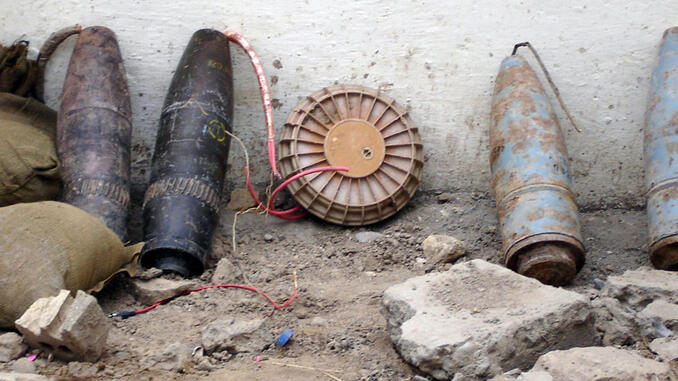
Pakistan has for years been accused by the United States of not doing enough to stop terrorism and the attacks on American troops in Afghanistan. President Trump wants Pakistan to change its ways, and his first tweet of 2018 let it be known. On January 1st Trump tweeted, “The United States has foolishly given Pakistan more than 33 billion dollars in aid over the last 15 years, and they have given us nothing but lies & deceit, thinking of our leaders as fools. They give safe haven to the terrorists we hunt in Afghanistan, with little help. No more!” Pakistani Defense Minister Khurram Dastgir-Khan tweeted back that Pakistan is an “anti-terror ally” and it has helped “decimate” Al-Qaeda over the course of the last 16 years. The latter part is certainly true, but it is not the threat from Al-Qaeda that is has been driving the rift with Washington in recent years, it is specifically Pakistan’s support of and lack of action reigning in the Haqqani Network and the Taliban.
The Haqqani Network has been a thorn in the side of America’s effort in Afghanistan for years now. It is considered the most dangerous terrorist group in Afghanistan having launched attacks on embassies in Kabul and the Afghan parliament building. It is responsible for the deaths of many American soldiers. The network’s base of operations is across the border in Pakistan in the Federally Administered Tribal Area. It has long thought that the Pakistani government aids and protects the Haqqani Network.
In 2011 then Chairman of the Joint Chiefs of Staff Admiral Mike Mullen said the Haqqani Network was a “veritable arm of Pakistan’s Inter-Services Intelligence Agency.” A year later the Obama administration blacklisted the Haqqani Network by designating the group as a foreign terrorist organization. Even though it was just a formality, it sent a clear message to Islamabad that if it continued backing the network it would be a deep problem with its relationship with Washington. Unsaid, was the option of potentially putting Pakistan itself on the list of state sponsors of terrorism.
Years later, it appears that message has been ignored as the Haqqani Network continues to be a major issue. It should come as no surprise to Pakistan that this issue has boiled over to a new American administration. Though, as is usually the case with the Trump administration, mixed messages have been sent. Back in October of 2017, Trump thanked Pakistani leaders in a tweet for their cooperation on “many fronts” and that the relationship was getting better.
Now the Trump administration has pulled Pakistani funding to the tune of $1 billion in aid until Pakistan takes “decisive action” against terrorism. Originally, United Nations Ambassador Nikki Haley announced a stop in funding. She told reporters after making the announcement, “The administration is withholding $255 million in assistance to Pakistan. There are clear reasons for this. Pakistan has played a double game for years. That game is not acceptable to this administration. We expect far more cooperation from Pakistan in the fight against terrorism.” That cut in funding was followed by an announcement a few days later that more funding would be cut, this time a much larger sum.
Why does Pakistan go to such lengths to protect the Haqqani network and the Taliban? It largely comes down to their paranoia of India. Pakistanis are convinced India is working with Afghanistan to undermine their country. Islamabad fears that if the Afghan government comes under control of pro-Indian leaders, they will be sandwiched on two sides by “hostile” nations. With that fear, they have worked to support the Taliban and Haqqani network in order to keep India out of the equation. Islamabad has viewed the U.S. as a waffling and inconsistent ally and is unconvinced that America will not pull out of the region prematurely, leaving a vacuum for India to fill.
To convince Pakistan of changing its ways in regards to its support of the Taliban and Haqqani Network, President Trump will have to do more than just cut U.S. funding. He will have to convince Islamabad that the U.S. is not going to pull out of Afghanistan prematurely. President Trump does have a bag full of diplomatic levers to pressure Pakistan into changing its ways. These pressure points could be anything from revoking Pakistan’s classification as a major non-NATO ally which comes with access to various military technologies, to working with other countries such as Saudi Arabia and the United Arab Emirates which contribute significant aid to Pakistan’s economy and have a close relationship with Pakistan’s ISI intelligence agency. To be successful, Trump certainly has his work cut out for him.
